Where to start? What we’ve learned since the COVID-19 outbreak is that the minute a word is written, it’s out of date. Because things can change. Rapidly. This was penned last week and is already out of date, but we have to start somewhere. In some ways, though, I am fortunate because of my work. Or am I really, I wonder?
With seemingly the entire planet brought to a sudden halt by the emergence of this virus, humanity’s clock has been reset. An organism that is defying its relatively nondescript name — it sounds more like a vacuum cleaner than a virus — is wreaking havoc on a world that has lost its nonchalance in an instant.
Century saving
Forget the one-hour clock adjustment of daylight saving, as we term it here in Australia, through the summer months. We’ve been rapidly plunged into a “Century Saving” adjustment as it were, a reversion to virus containment methods that we’d thought a distant fragment of life from 100 years ago. The year 2020? Only in name. We looked to 1920 for hints and methods.
And so it has been that we have all looked on with horror the events in China, Italy, Spain and now virtually everywhere. The only defence available to us — despite all the technological marvels of modern medicine – has been the ancient one of distance. All across the globe, we have closed our doors. Shut down lifestyles. Friends and family kept at arms reach.
In Melbourne, we’ve termed current measures as “Stage 3 Lockdown”. Most businesses are closed. The streets are largely empty. You can shop for food. Walk the dog around the block. There are inherent contradictions. Fishing was banned here yesterday, though could there be a more effective “social distancing” than sitting alone on the bank of a remote river or stream? Other states have not banned this.
Bonking ban
There is no consensus across the nation. Victoria also banned romantic visitations between couples who didn’t live together. For about two hours. It was immediately called the “bonking ban” but was overturned soon after lunch. We now have no meetings in public of more than two people, and yet the construction industry continues. Hundreds of workers are on some sites as governments desperately try to juggle the eradication of the virus versus economic destruction. They have many balls in the air, some inevitably get dropped.
In some ways, I have been more fortunate than most. As a tradesman, I have been permitted to work and have done so over the last two weeks. So many around me have lost their employment, including others in my household. Interestingly though, as the days progressed, I found it increasingly wearing.
Click on images to enlarge
Like a spring being twisted each day, I could feel the tension rising. I became addicted to the terrible figures emerging from Italy and elsewhere. I couldn’t bring myself not to look, not to understand what was happening. We implemented strict hygiene processes on the worksite, and yet I could feel the mental fatigue building as I tried to keep track of everything I’d touched, making sure not wipe the sweat from a brow, to ponder how best to eat a lunch that may or may not pose a hazard.
Closed doors
And then there’s the constant, distant nagging worry about the wife and kids. I really don’t want to bring this thing home with me. Just how much this sort of thing affects us wasn’t really driven home until I took the Sunday off.
The relief at leaving the front door closed and not having to venture out into the world was palpable. I can only imagine the stress levels for those on the front line, in the emergency departments, surgeries and isolation wards. I have several members of the broader family involved as doctors on the frontline, and I sent them spontaneous messages of support. It’s a trifle, perhaps, yet they’ll need every ounce of goodwill they can get.
Strangely, I felt much better on the Monday. Productivity was far below what it would normally be, but that had ceased to matter much. I gave myself some slack. And as an amateur photographer, the situation does provide some unusual opportunities. I can wander through a shopping centre, usually teeming with people, and marvel at the emptiness of large structures. I decided to risk a visit to a train station on my way to work. Five weeks ago, there’d have been hundreds standing idly by, waiting to commute into the city. Here, there were barely half a dozen.
A lady was lathering her arms in hand sanitiser like a sunbather at the beach. We nodded and smiled at each other. I asked her quietly — it seemed inappropriate to introduce any noise into a surreal scene of silent tension — how weird this all was. She agreed, bizarre was the word that came to mind for her. It seemed apt. The train arrived, itself almost trying to sneak in surreptitiously, carriages almost empty. The few passengers standing around boarded with downcast eyes, thoughts kept to themselves.
Curiosity
Documentary curiosity aroused, I went a step further than I really should and instinctively jumped aboard the last carriage. A tiny smattering of commuters filled a few seats, no one spoke. Here was peak hour in name alone. I viewed every surface with suspicion, the usual grime of Melbourne trains assumed more sinister character in my imagination.
I got off at the next station and waited for a return train. This one was even more desolate, just two subdued travellers in a carriage built for more than a hundred. I made my way back to the work vehicle and disinfected my hands, face and cameras. For the documentary photographer in March 2020, an aerosol can of disinfectant has supplanted most other items in a camera bag. Unthinkable, just a few weeks ago.
It seems paradoxical but as the social restrictions have tightened, people seem to be seeking contact and conversation more often. An older couple, keeping their distance in the line behind me at the checkout, struck up a conversation with me.
They had lost their jobs the previous day. I commiserated and hoped that this wouldn’t last too long. “And the queues, I suppose we will we have to get used to these queues?”, opined the lady. I told her that a well-timed sneeze would probably accelerate her journey to the front of the line. This drew some amused laughter, and disapproving looks, in equal measure. Such is the dark humour of the times.
Opinion in the sun
On another day, I settled in an open area in the sun, away from people making their way into the supermarket, to have lunch. A few pigeons joined me for company. Shortly after, so did Dee, a young woman likely in her mid-20s.
She sat a short distance away, equipped with salad roll, and across a five-meter divide and now burgeoning flock of birds, felt compelled to converse. She is five months pregnant, her partner has lost his employment, at least in the short term, and she is now the main breadwinner, working at a local hardware chain on the registers. I asked how she was coping.
“I’m dealing with probably a thousand money transactions per day, but I’m ok”. She shrugged. “And it’s only what, eight people who have died so it’s not too bad is it?”
“Sixteen actually”, I corrected her. “And perhaps it’s Italy that we should be watching. They’re losing 800 per day.” I was surprised at my own gentleness because I was astonished at the naivety, or worse. Her eyes opened wide. “800 dead? Every day!? That’s terrible! Horrible!”
She was silent for a while. I decided to shift the topic by inquiring why she was in the outer northern suburbs. She brightened again. “I have an ultra-sound! I’m finding out the sex of my baby today! It’s my first!” Her excitement was palpable, and nothing was going to ruin her day.
The great survivor
The following day there was Ian, an older gent who pushed a trolley laden with various products past me at a polite distance and perched himself on a ledge. He brandished a take-away coffee like a trophy. Eat-in has been outlawed for several weeks but cafés are entitled to serve takeaway products, and most have availed themselves of this right. He gave me a nod and holding the cup aloft declared that as long as he could have his morning caffeine, all was well. As a coffee addict myself, I could only smile in agreement.
I was curious about the yellow stain on his moustache, wondering about its origin, which was soon revealed upon the production of a cigarette. He lit it and drew on it with apparently studied concentration, before alternating coffee sips with cigarette smoke. Ian wasn’t terribly bothered by the situation either. He was put out, but not overly worried. He’d retired a year or so ago. He’d survived a heart attack. He’d also survived three bouts of cancer.
Given the rate at which he’d ploughed through the first cigarette and deftly moved to a second, I was less surprised at his ailments than the fact he’d survived them. But no, he could take COVID-19 in his stride. It was unfair that he couldn’t go fishing or shooting though. Being confined to the house just wasn’t his thing. So he came to shop for minor incidentals every day, and fetch his morning coffee.
Elsewhere has seen the emergence of new jobs and new ways of doing things. Coles – one of two premier supermarket chains — suddenly stationed a staff member at the entrance, tasked with wiping down the trolley and basket handles before customers could take one. Taped crosses and lines have appeared like overnight mushrooms on floors, indicating suitable clearances from fellow shoppers.
New Testament
The chaos of the early weeks, which saw shelves stripped of all manner of personal and cleaning goods, has abated somewhat. It has been replaced by a sort of calm tension if there is such a thing. The panic buying has gone, and instead, people go about their business with quiet determination.
A young security guard — presumably required after some confrontations between shoppers back in the Great Toilet Paper Shortage days of early March – keeps a small copy of the New Testament in his pocket. I’ve seen him flicking through its pages in an idle moment. His unease seems to aptly sum up the environment in which we are all functioning at the moment. I make sure to say hello to him every day, he is just a boy and looking for strength in his faith. Hopefully, he can find some in the people caught up in all this with him.
Some stores have taken to becoming shop fronts only. You ring a bell, place an order for whatever goods you may need and they’re fetched from the bowels of the shop behind the makeshift counter. To my mind, it’s an appropriate and ingenious system that limits the number of hands that have contacted an item, and the inevitable slowness is not a problem because the foot traffic has dwindled to almost nothing. Chemists run a similar system. Only a few customers allowed in at a time, everyone is offered — or, rather, has enforced upon them — a squirt of hand-sanitiser as precondition of entry.
Masks have become essential accoutrements for many folks, as routine a part of their daily uniform as a hat. Some wear gloves. Cash is undesirable, far better to tap and go with the card. The electrical wholesaler I use for my materials won’t sell to cash customers at all. If you don’t have an account, we aren’t for you. I’m trying to keep domestic jobs to a minimum. If it’s an emergency, ok. If you just want a few power points installed, sorry, you don’t want me in your home and I don’t want to be there. This is the new norm. For how long, none can say.
We have made some terrible errors here in Australia. Mainly around cruise ships and lack of strict quarantining for people arriving from overseas. We lost six weeks and countless chances to minimise the early spread of the virus. And we have our share of ignorant and unthinking citizens.
But by and large, we have shifted to the new reality relatively seamlessly and kept a sense of humour about it all. And when we look around the world at how others are faring, it’s quite a straightforward answer to the first question I posed. I’m fortunate indeed.
Read more from Jason Hannigan
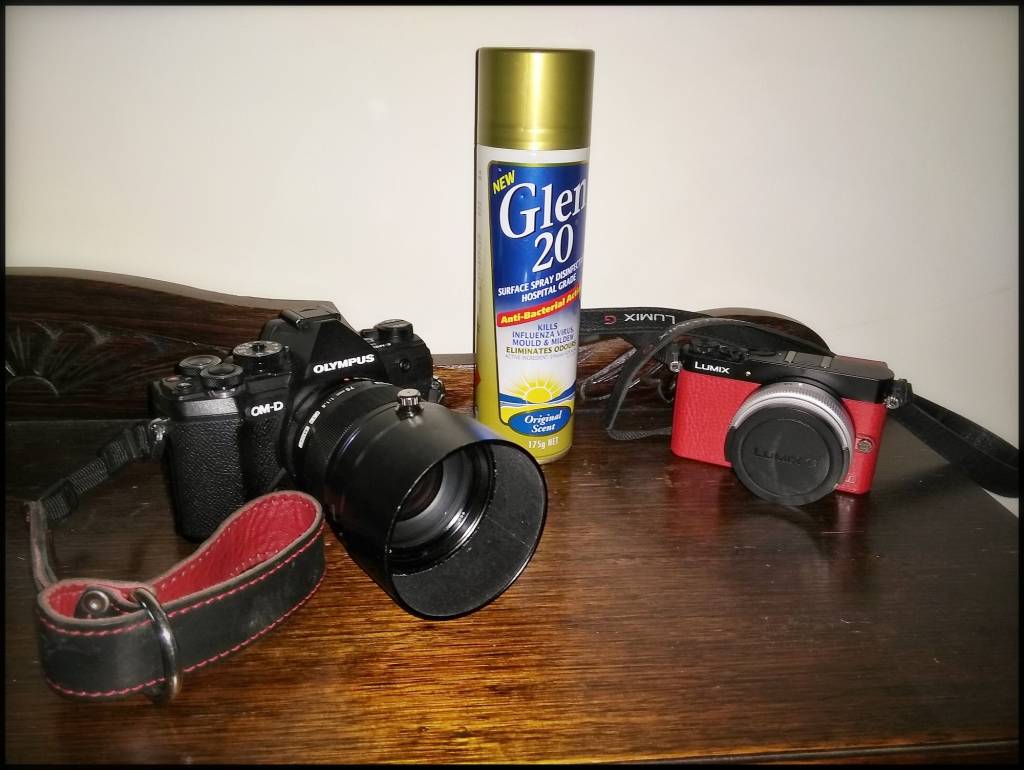

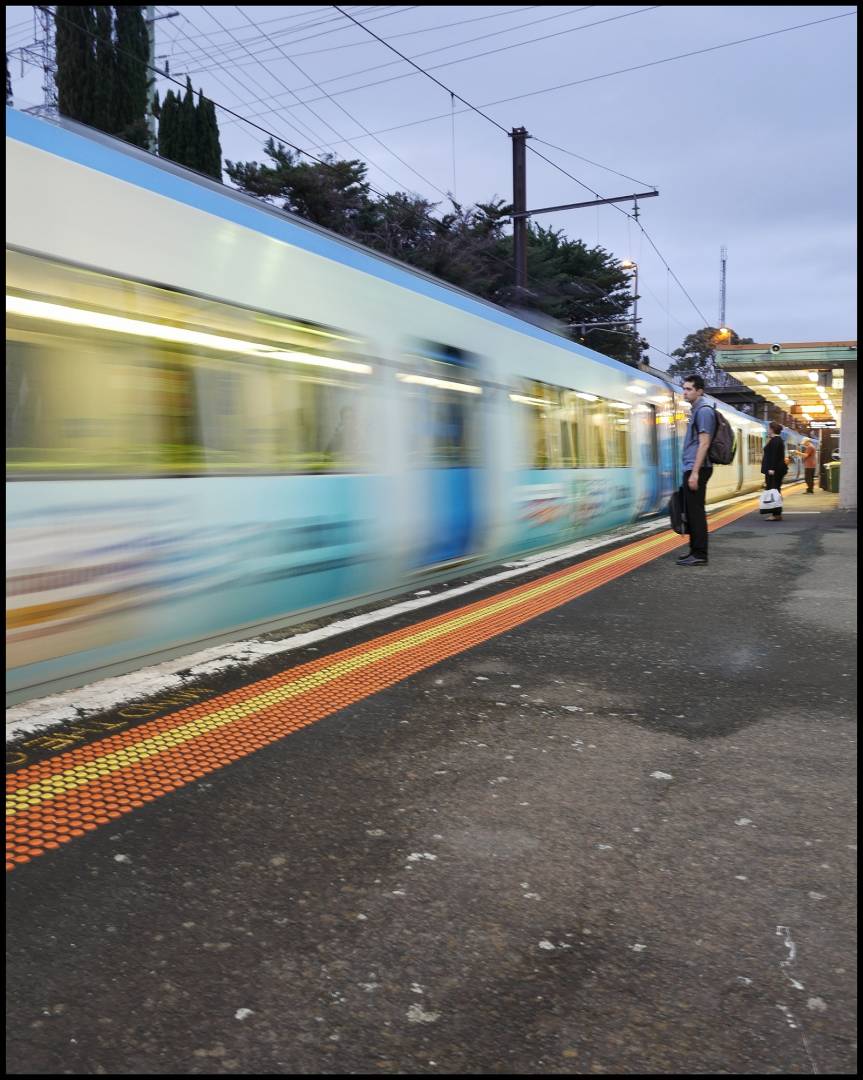
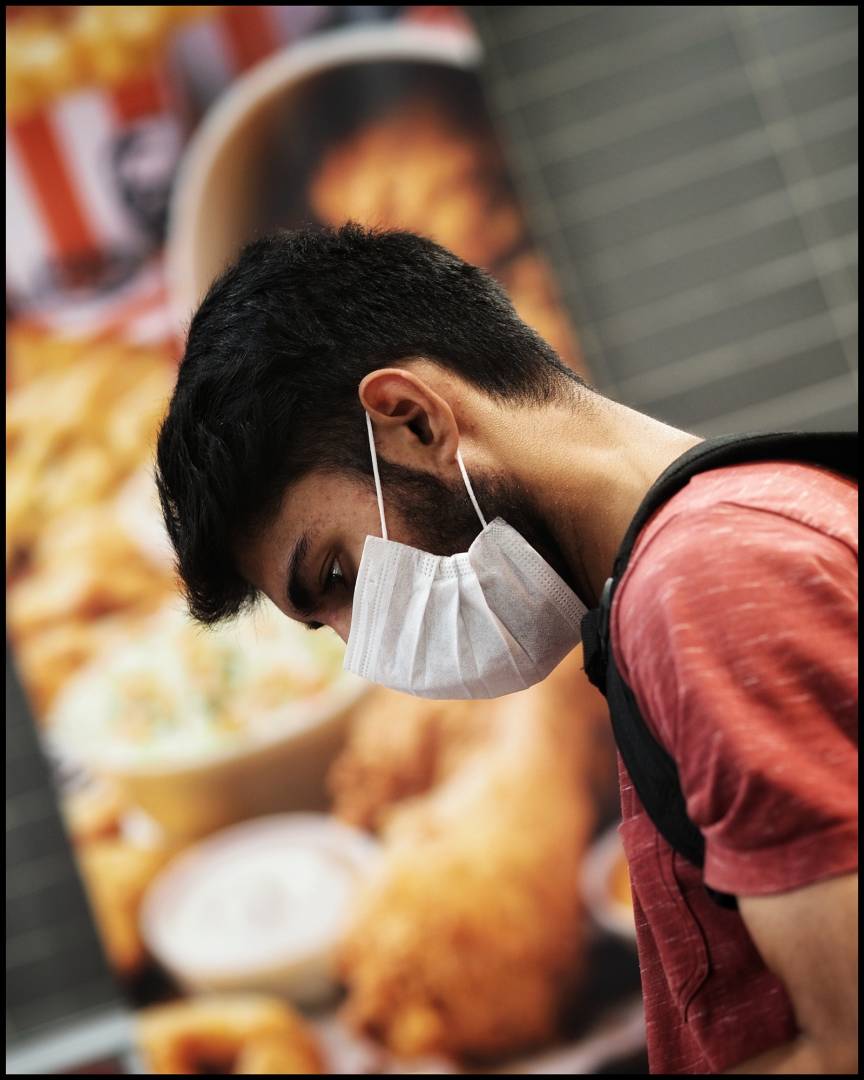
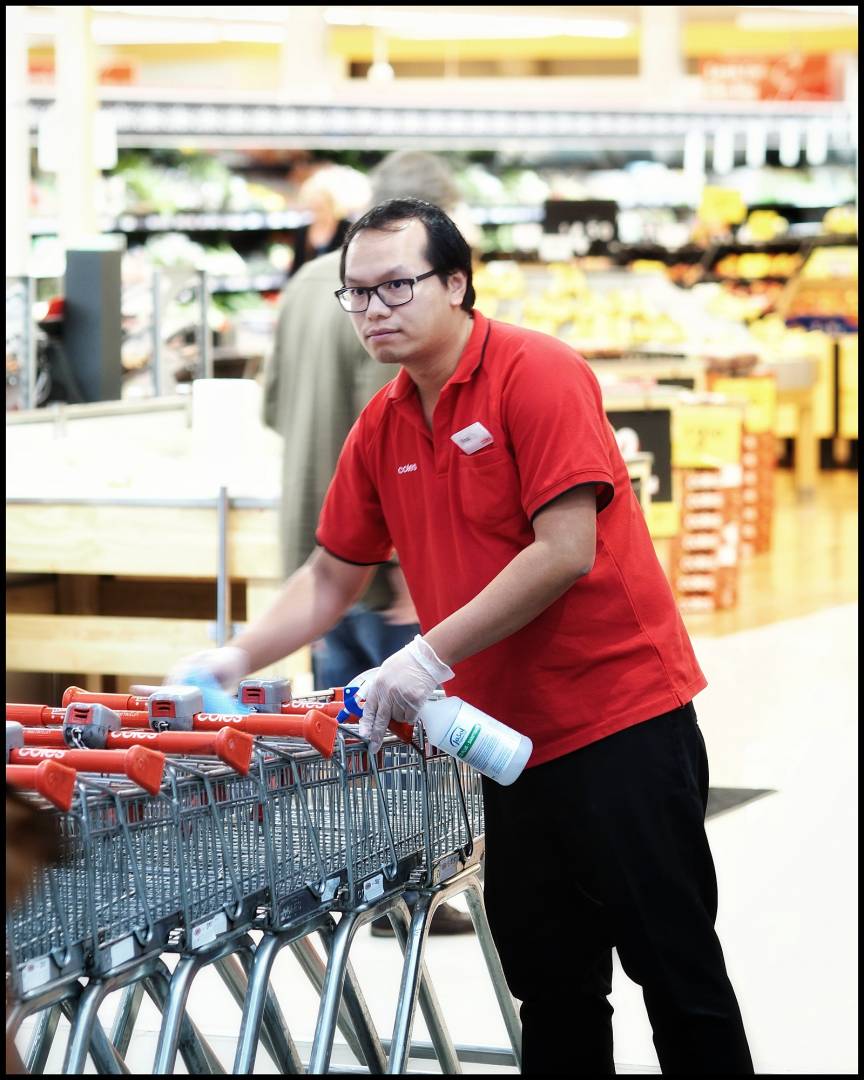
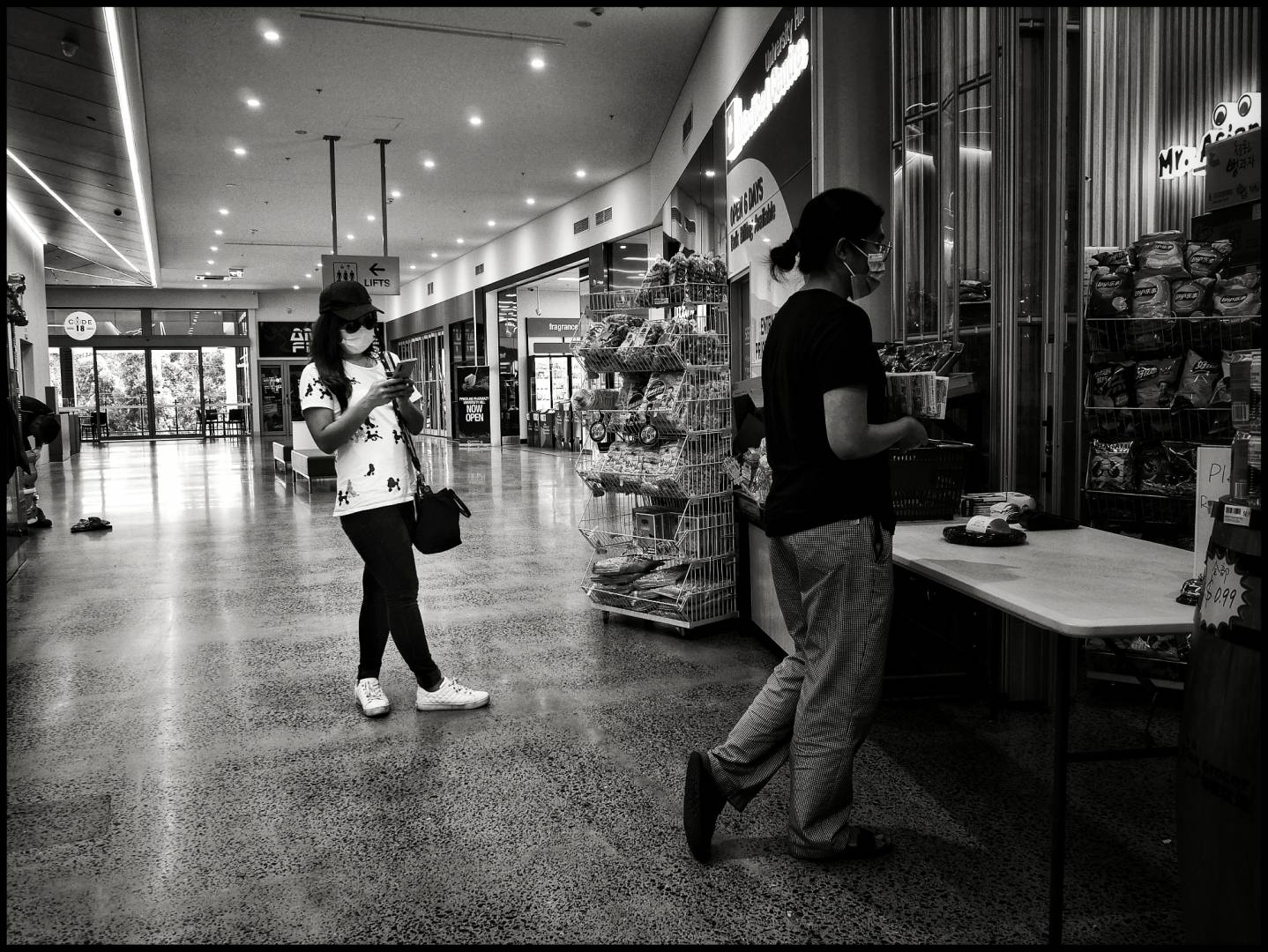
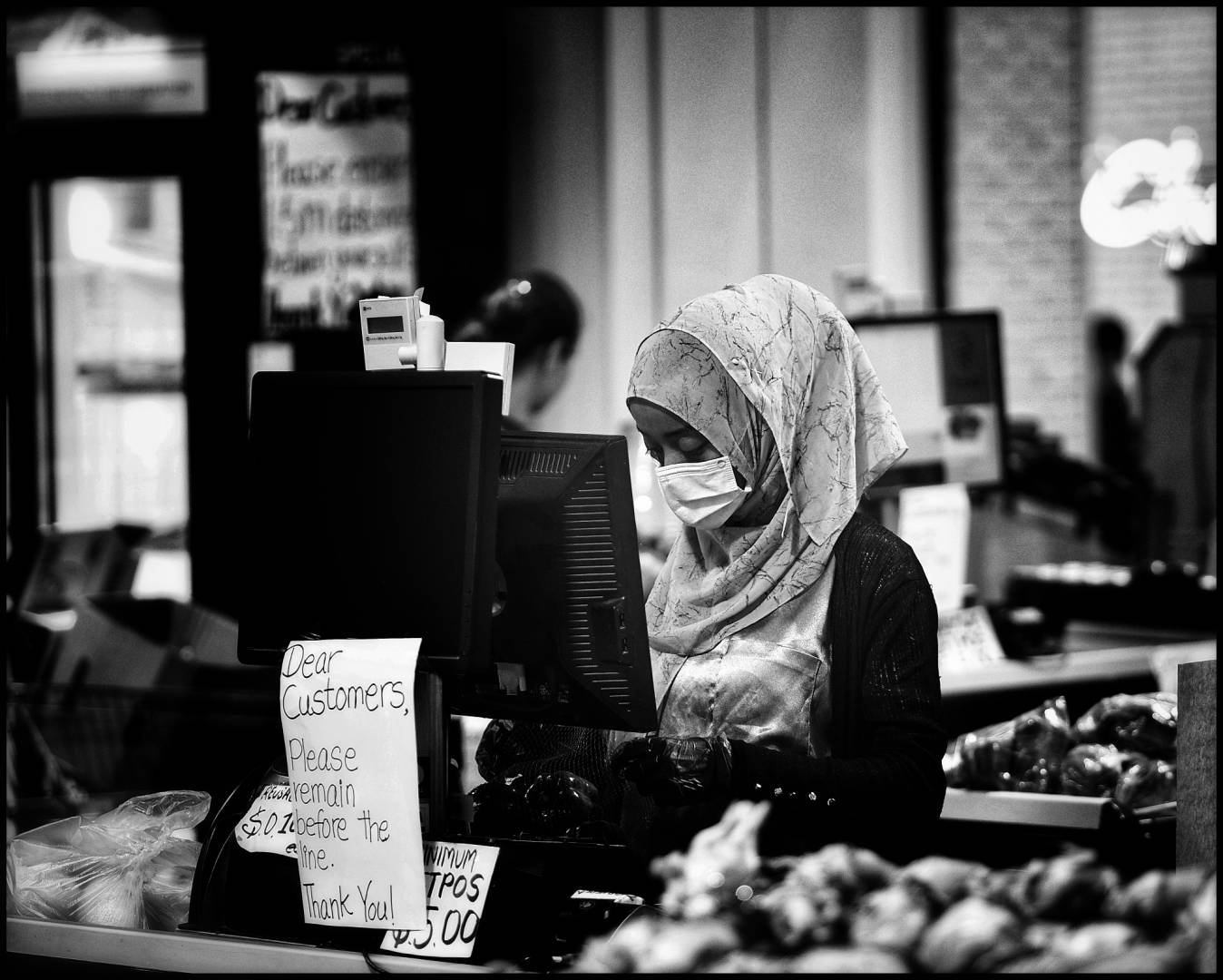
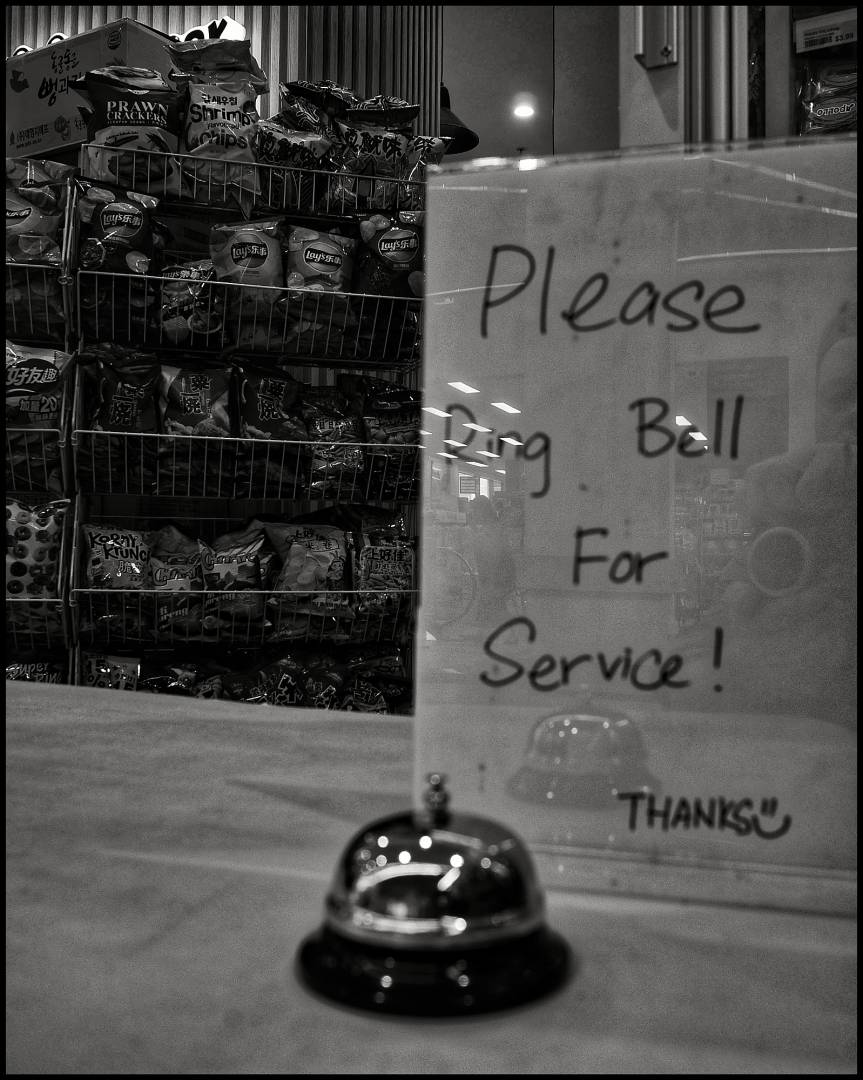
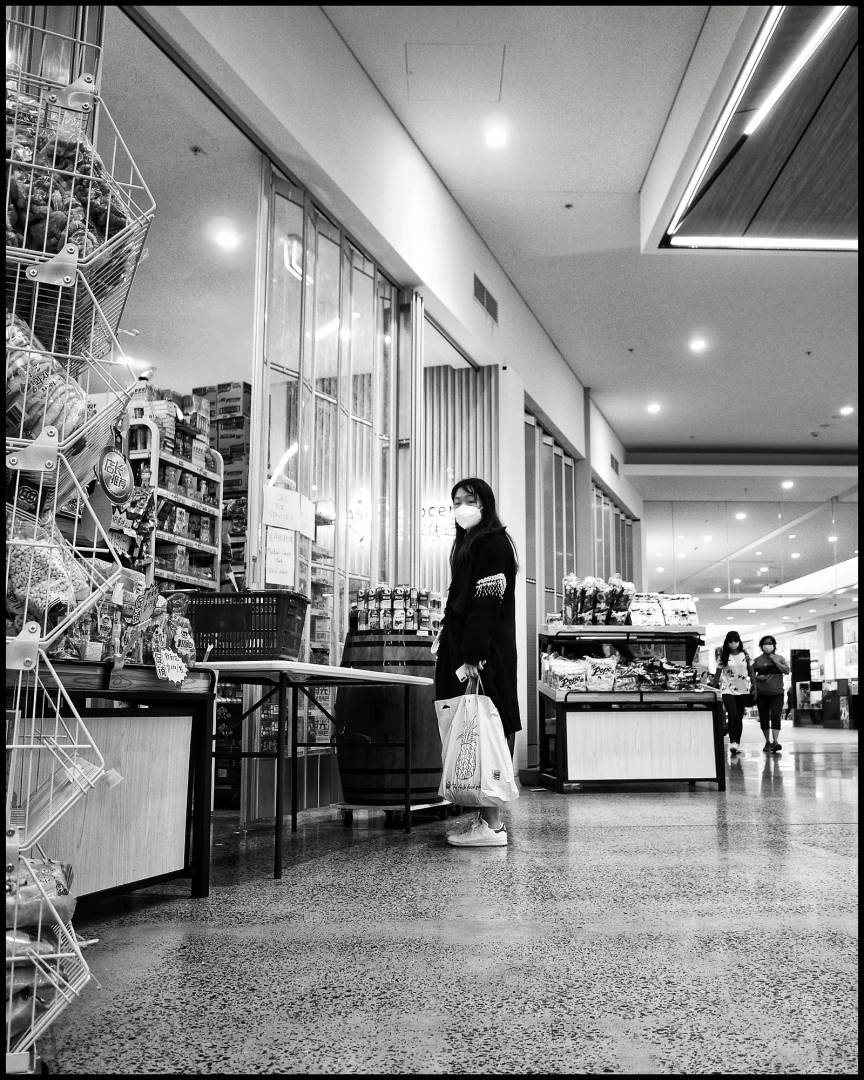
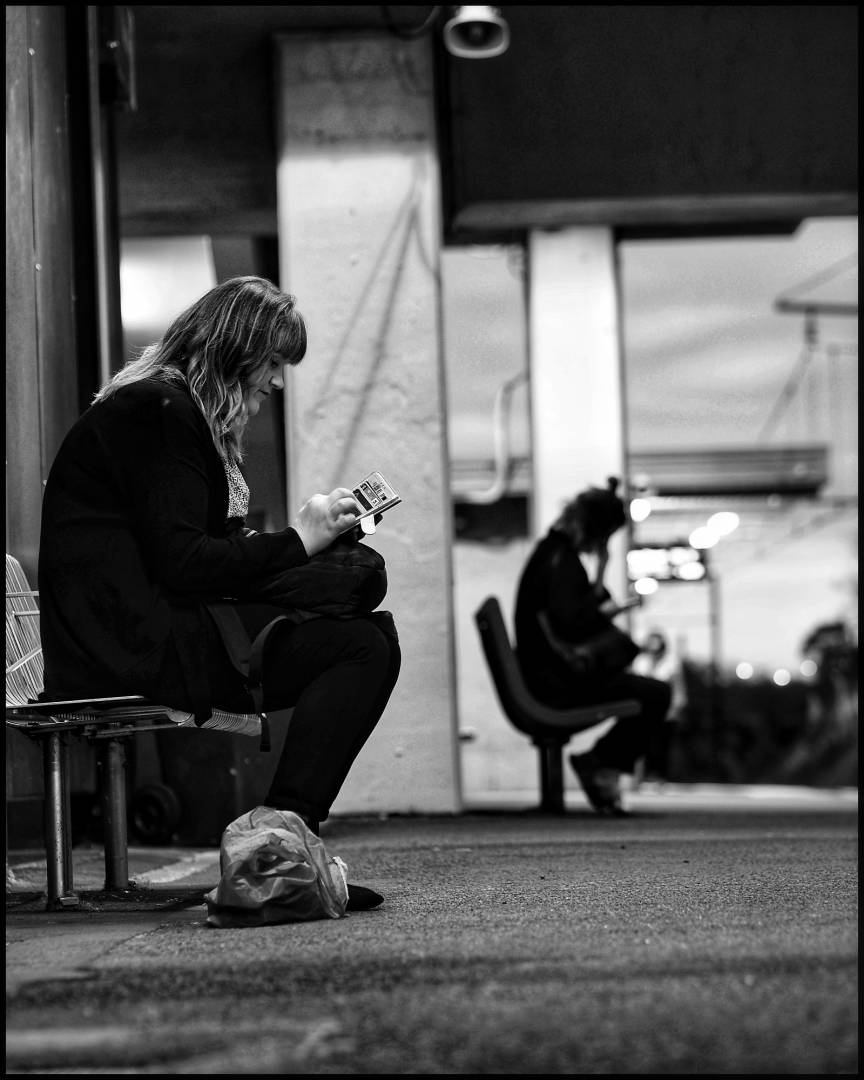
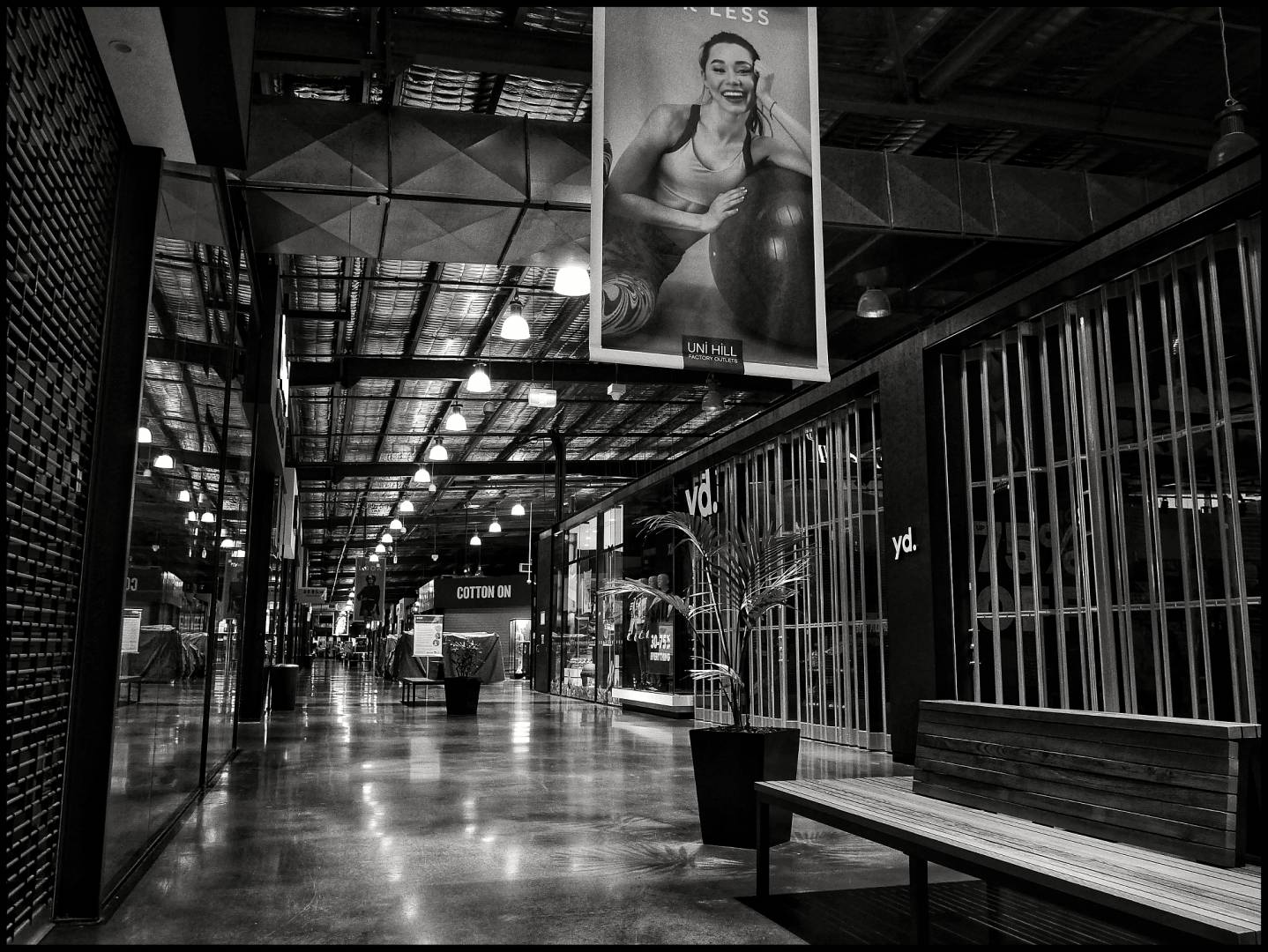
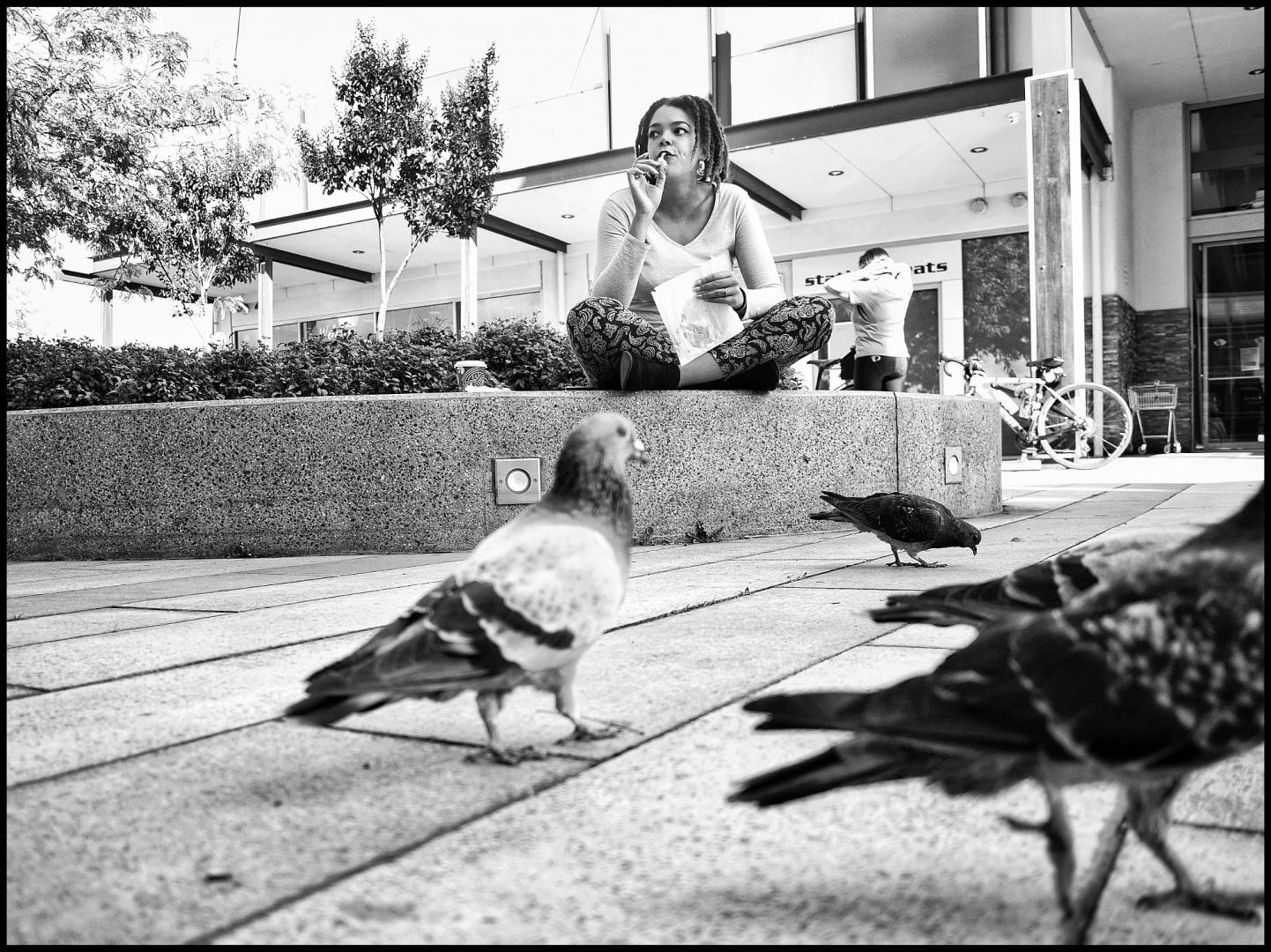
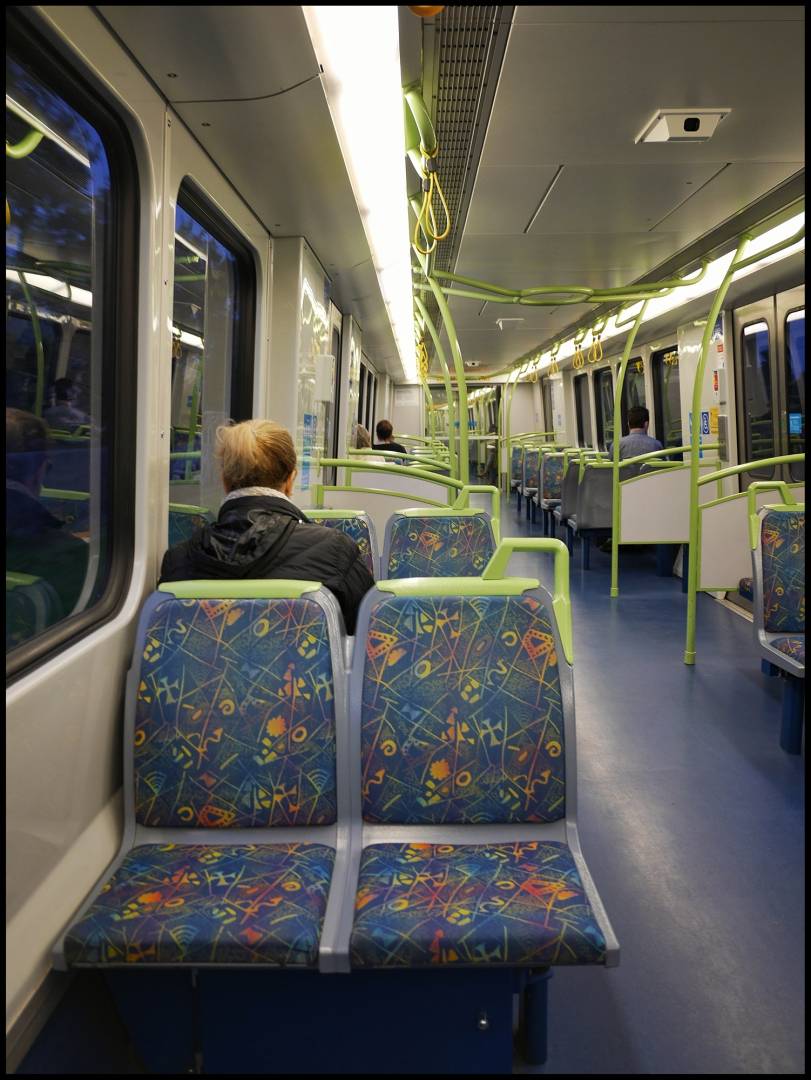
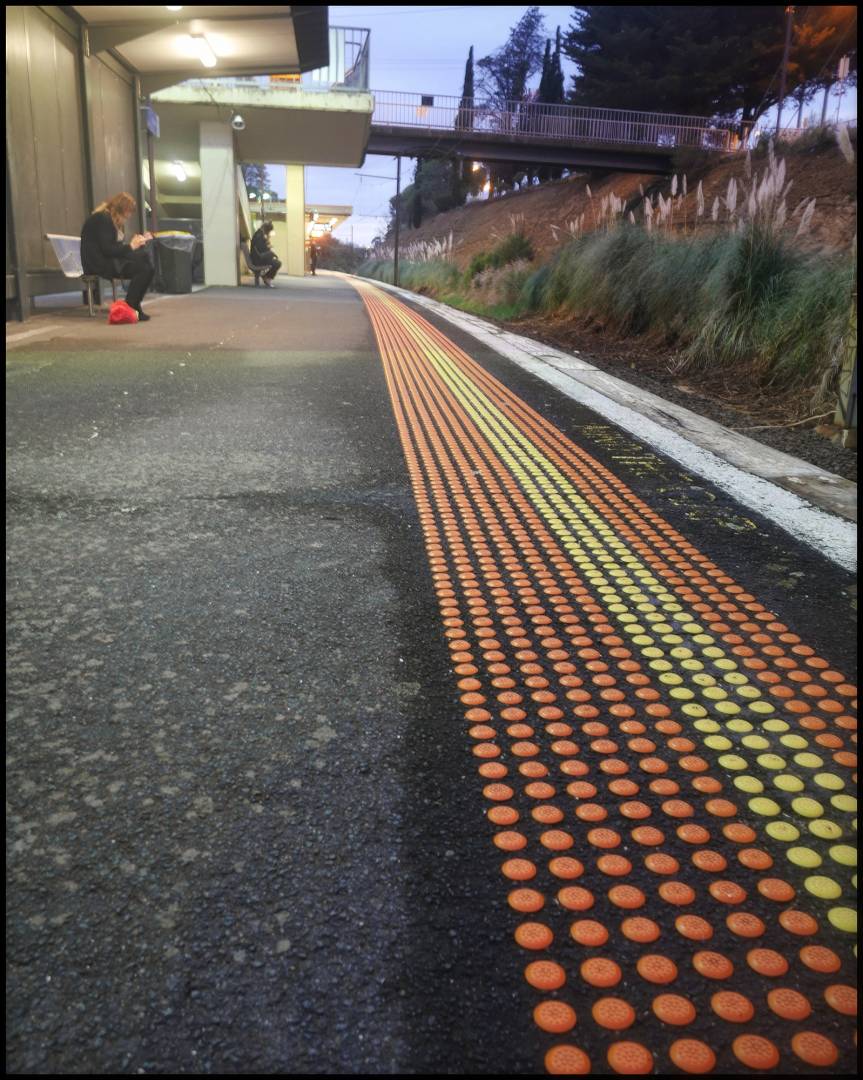
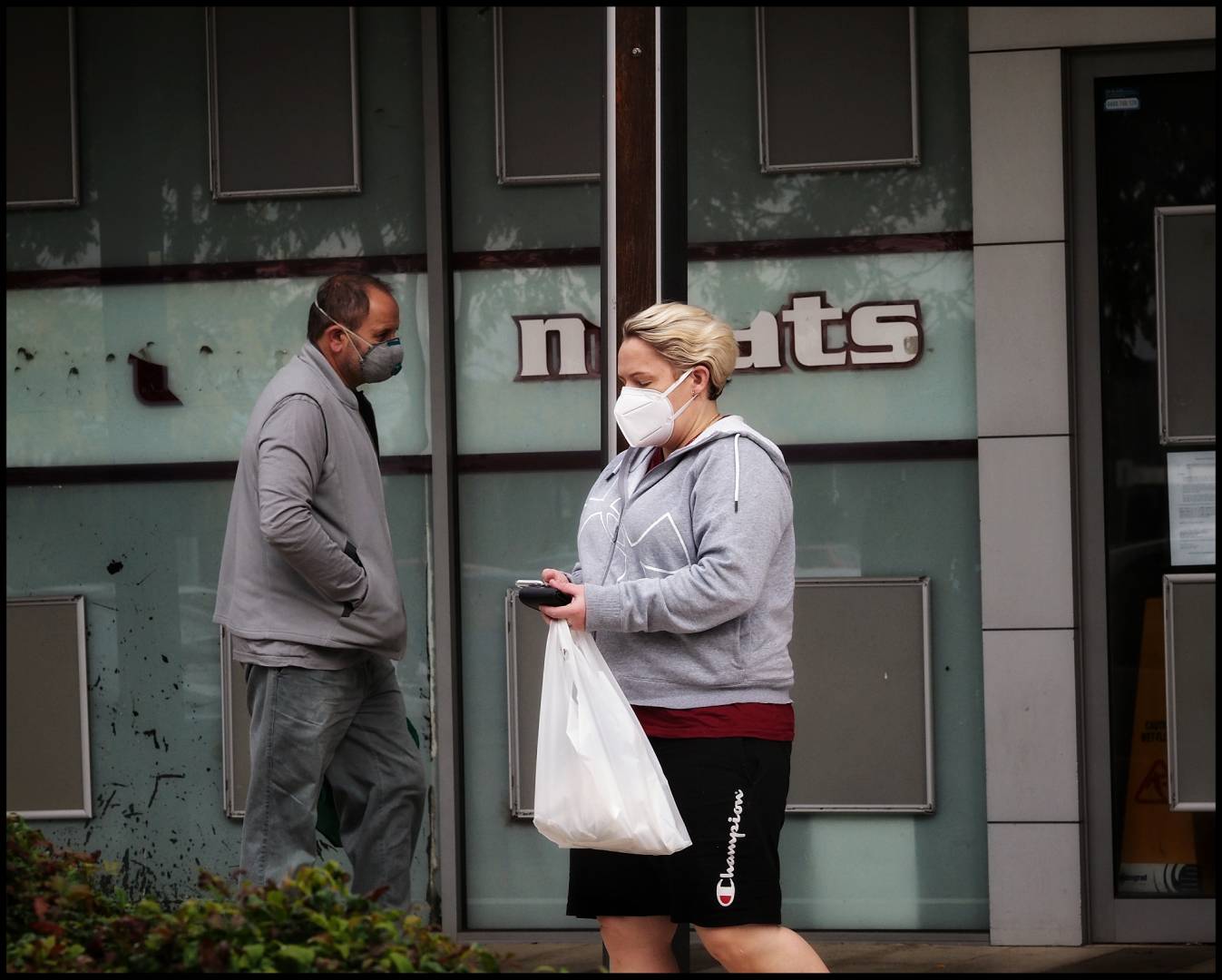
A very good article Jason and very good images. keep safe and thanks for sharing
Thanks, Jean. Appreciate the comment.
Thanks for the feedback, everyone.
Stay safe and healthy, wherever you may be.
An excellent piece of photojournalism Jason. You have covered the situation well with some excellent pictures. I am very impressed. Almost all business is now in lock-down here, all construction included. That won’t help the ever increasing price of real estate in Toronto, but it may keep us all a little bit safer.
Except for one brief outing for groceries, we’ve been locked up in our house for three weeks now and are starting to go a bit batty, but still I salute your courage for continuing to work and capture the images for your story. Stay well.
Nicely done and considered Jason, I think you are right on some fronts, more so when I watch the antics of some locals here in Kent flouting the restrictions – they do not see the magnitude of what is happening around us. This is almost like a zeroing of the human race, our one weakness being grimly picked at by a microscopic invader, that is clearly indiscriminate.
Your images portray for me what I am seeing around me. It is not fun. The two trusty cameras serve you well, and I like the gritty real feel.
Roll on coffee morning.
Keep safe everyone, and hopefully we will weather this storm and get back to doing what we do best…. erm… well… that might be… taking photographs… no. no. no.. buying gear that would be the right answer. After all, while our dealers remain closed, how can we buy gear. My bank balance is being burnt on loo roll, not tech. 🙁
I do have some Andrex Shea Butter handy for exchanges. 🙂 anyone. anyone.
Dave
Thanks Jason, interesting to see what’s happening on the other side of the world. Much like here in the UK. Kevin
A very thoughtful commentary on life under CV-19 restrictions. It’s hard to find the right balance between dictatorial and benign “anything goes” approach. Depending on where you are politics and religion also come into play. To “lock-down” a community in some parts of America is anti-libertarian: your Constitution rights have been squashed. Religious groups also holler about the right to assemble to worship. How do you convince the various interests that the safety of the majority is paramount when the data gets twisted as “fake news”? i wonder what wartime Britain would have been like with these attitudes; that the individual’s rights might count for more than the collective safety of the majority?
Thank you from another part of locked down Australia. A really good read on a difficult subject for all of us, beautifully illustrated.
I’m with Steve on this.
Well written, your words paint an accurate and thoughtful picture in themselves, and your chosen images add to it.
Thanks.
A very nice article on a sombre subject. Your photo of the pigeons reminds me of Parr.